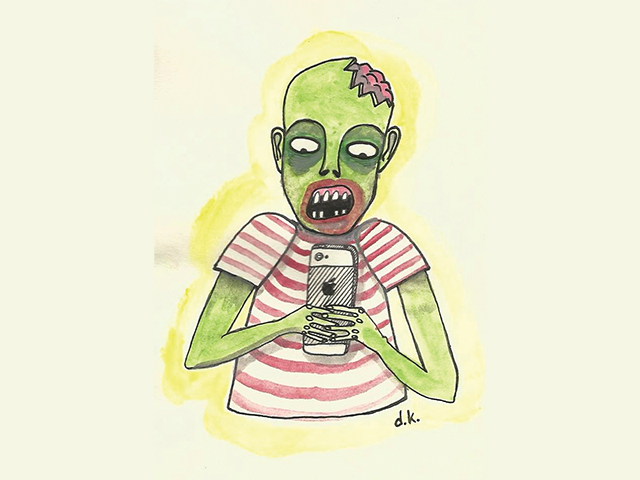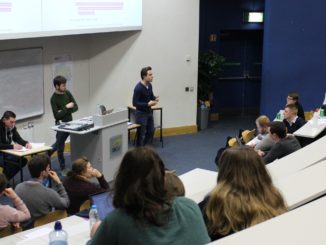
[dropcap]R[/dropcap]yan Tubridy sparked a national conversation on whether we have fallen too far down the rabbit hole of social media into all its filtered wonder and forgotten how to interact with our fellow human. Tubridy fuelled this debate while doing a segment during a recent Late Late Show on how easy it is for paedophiles to contact children through social media. Although it is worrying that the unbridled use of technology by children can be dangerous, it is a fact we are familiar with. Instead, people are starting to examine the relationship between people in general and technology and just how dependant we are on it and how much of ourselves we give away while using it.
Kylie Jenner exemplified how intrusive social media can be lately as she recently removed herself from the limelight while she was pregnant with her daughter, in order to give herself complete privacy. As Jenner has grown up with the majority of her life on camera, removing herself from the public eye displays how valuable yet scarce privacy can be. The need to remove oneself from the social media sphere also indicates that too much online activity can have detrimental consequences to your health.
Our world is built around technology as multinational technology firms such as Apple and Google employ up to 10 per cent of Irish people and it seems people working there could be using their employer’s products and services while on the job. As everything else around technology is evolving around it, there is a lack of legislation around to deal with online issues which, at the moment, are brought straight to the courts instead like that of hacktivist Max Schrems.
“We are at a stage where technological advancements are rapid and legal frameworks are catching up,” said Paul Sweetman, Executive Director of Technology Ireland.
In an article on Independent.ie last year, a report by the Royal Society for Public Health was quoted stating that “the platforms that are supposed to help young people connect with each other may actually be fuelling a mental health crisis.”
However, this can be said not just for children. According to a study by Ipsos MORI, a market research organisation for the multinational professional services network Deloitte, 90 per cent of Irish people have a smart phone. The number of those over 60 years old with with a smart phone has risen to over 54 per cent.
This may seem innocuous until William Fry, an Irish corporate law firm, found that 78 per cent of people go online at work.
The Pew Research Centre indicates the most common reason for this is to “take a break” while at work. If this is the case the average person is rarely switching off from the chaos of public life and the correlation between the rise of the smartphone, social media and mental health cannot be ignored.
The Irish government seems to acknowledge Albert Einstein’s theory that “it has become appallingly obvious that our technology has exceeded our humanity,” as there is currently talks in the Oireachtas of setting the digital age of consent to 13 years.



